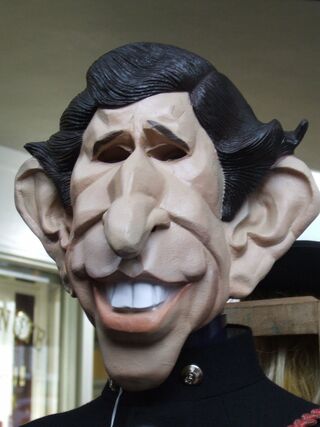Integrative Medicine
Prince Charles’ Love Affair With Alternative Medicine
Amplifying pseudoscience can have real negative consequences.
Posted February 15, 2022 Reviewed by Michelle Quirk
Key points
- Alternative medicine involves approaches to health that may be either unproven or disproven and are often pseudoscientific.
- Celebrities often have a large platform from which they can amplify pseudoscience and misinformation. And some are very powerful.
- Prince Charles has been the most persistent champion of alternative medicine in the United Kingdom and perhaps even the world.
We live in an era when health-related pseudoscience and misinformation are rampant and do real damage. The pandemic has made this fact clear. One way in which pseudoscience and misinformation have been allowed to spread is by doing so under the guise of “alternative medicine.” That is, by definition, alternative medicine encompasses health practices that exist outside of conventional health care. In reality, these approaches to health are either unproven or disproven, and they are often pseudoscientific with respect to their theoretical rationales and the body of support on which they rest.
While regulated health professionals—including psychologists—are obligated to promote and practice evidence-based health care as dictated by their aspirational ethical codes and legal standards of practice, people can and do obtain their health information from sources other than health professionals, such as via social media and celebrities. Unfortunately, celebrities often have a large platform from which they can amplify pseudoscience and misinformation. And some are very powerful.

Biography by Ernst
This brings us to the heir of the British royal family’s throne, Prince Charles, who has been the most persistent champion of alternative medicine in the United Kingdom and perhaps even the world. To obtain a better understanding of exactly how Prince Charles came to fight for alternative medicine and its associated societal impact, I just finished reading Dr. Edzard Ernst’s fascinating new book, Charles, The Alternative Prince, An Unauthorized Biography.
For those who are less familiar with Dr. Ernst, he is a retired physician and scientist, and he’s widely regarded as one of the world’s foremost experts on alternative medicine. In part, he has earned this title by experiencing alternative medicine as a patient, clinician, and scientist, whereby, according to a recent analysis, he was ranked as the most-cited researcher in the category of “Complementary & Alternative Medicine.”
Not only does Dr. Ernst’s expertise render him the perfect person to author a book that details Prince Charles’ love affair with alternative medicine, but what makes this book so interesting is that Dr. Ernst also details how their respective timelines converge. For example, in 1993, Dr. Ernst was appointed chair of complementary medicine at the University of Exeter, tasked with scientifically investigating all aspects of alternative medicine. Prince Charles was aware of the post and was even peripherally involved in creating it—he was also involved in its disbandment 20 years later.
The structure of the book follows Prince Charles’ alternative medicine-related activities in roughly chronological order. Since the 1980s, Prince Charles made strident attempts to boost the image of alternative medicine, make alternative therapies more available to the general public, lobby for alternative medicine financial coverage, and influence politicians for its support. In the book, each time a new type of alternative medicine is encountered, Dr. Ernst incisively contrasts Prince Charles’ perceptions with the scientific evidence that was available at the time. As such, most chapters are divided into four parts: (1) a short introduction of the alternative medicine topic, (2) Prince Charles’ view, (3) an outline of the evidence, and (4) a comment about the consequences.
In particular, the “evidence” section of each chapter serves as a valuable and concise bird's-eye view of the current state of the evidence base for a variety of alternative medicine approaches, such as osteopathy, chiropractic, herbal medicine, traditional Chinese medicine, Ayurvedic medicine, and homeopathy, among others.
Propaganda Tactics
The less explicit—albeit, equally important—layer to the book is its ability to shine light on various propaganda tactics that are used to buttress alternative medicine, such as the wielding of pseudoscientific journals and logical fallacies (e.g., appeal to nature, appeal to tradition) to cajole audiences. For example, at least two chapters are devoted to helping people understand the misleading nature of “integrative medicine,” which is a rebranding approach that seeks to integrate alternative medicine with conventional health care to give it a veneer of scientific legitimacy. Dr. Ernst describes how integrative medicine can endanger public health and deceive patients, such as via the bait-and-switch tactic, which involves offering evidence-based treatments (e.g., exercise) and then switching to promotion of unsupported and pseudoscientific treatments (e.g., homeopathy).
After reading the book, I was both surprised and happy to learn that, despite Prince Charles’ status and influence, most of his lobbying efforts to promote alternative medicine for more than half a century resulted in failure as the importance of evidence-based health care was consistently too strong to overcome. Nevertheless, it is unfortunately the less-tangible aspects of widespread alternative medicine promotion that can have equally dire consequences via the spread of misinformation. Indeed, if the pandemic has had any silver lining, it’s that it has highlighted the dangers of tolerating a culture that allows pseudoscience to remain unchecked. Dr. Ernst’s new book is a must-read for those who are interested in how pseudoscience, masked as alternative medicine, can become unmasked.


